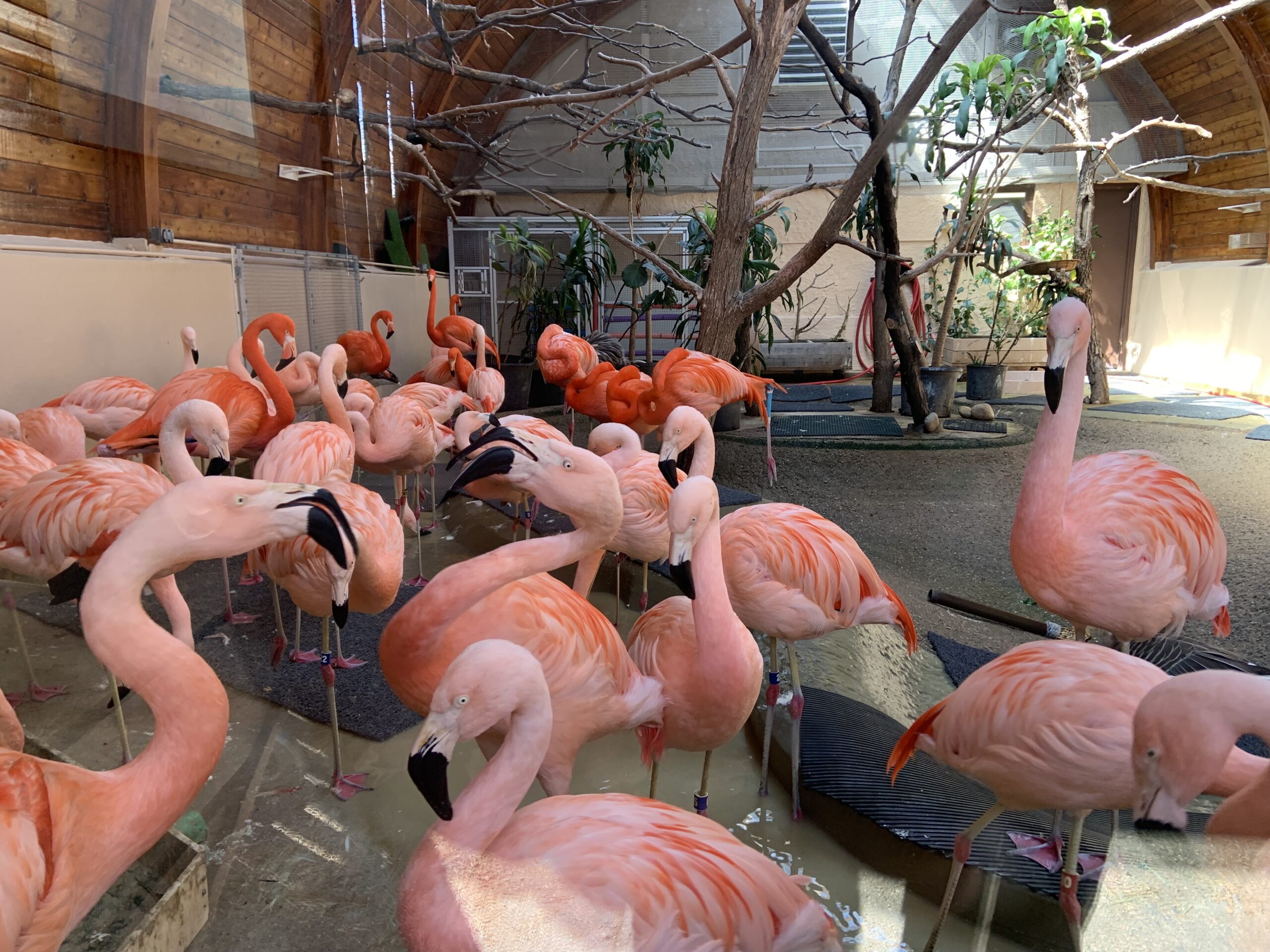
Updated Wednesday at 1:13 p.m.
For the past few months, outdoor bird exhibits at the Denver Zoo have been vacant as zookeepers kept them indoors to protect them from the avian flu.
But experts at the zoo now believe the local flu threat has passed. Reported cases in most parts of Colorado have reached single digits, and there have been no cases confirmed in Denver since late May.
That means the flamingos are back on their occasional crowd walks (and will soon be moving into a new home), while the penguins have returned to their swimming pools.
“We’ve been monitoring along with the state vet what has been happening as far as cases and number of cases that are being seen, where they're being seen around the state,” said Brian Aucone, the zoo’s senior vice president for life sciences. “Those numbers have significantly declined. They're near zero at this point.”
The avian flu swept across the United States earlier this year, infecting mostly geese, ducks and domestic chicken flocks. The disease is highly contagious, resulting in symptoms like fatigue, decreased egg production and nasal discharge. Infection almost always means death for birds.
Infections peaked in March, according to the USDA, with cases steeply dropping off in May. Still, several chicken flock in Colorado were rattled by the outbreak, with over 3.5 million birds affected. One farm in Weld County had to euthanize a flock of nearly 1.4 million chickens after a breakout in cases.
The flu remains a threat for commercial farm operations due to the number and density of their birds. But people with small backyard flocks can probably follow in the zoo’s footsteps, according to Aucone.
“People who raise chickens are in the same boat as we are in the Metro area here where the risk is pretty low,” he said.
The state veterinarian’s office said they still recommend strict protocols for backyard owners.
"With the latest confirmed cases of highly pathogenic avian influenza in poultry just last week in Nevada and this week in Oregon, HPAI continues to present a high risk to backyard and commercial flocks across Colorado and the U.S,” said Colorado State Veterinarian Dr. Maggie Baldwin. “My office recently issued guidelines that strongly recommend domestic bird owners continue following strict biosecurity measures, such as limiting interactions with wild birds, maintaining a closed flock, and keeping visitors to a minimum to prevent introduction of the virus.”
Despite the decline in cases, state officials are continuing to take the avian flu seriously. Last month, Governor Jared Polis extended an executive order declaring the disease a disaster through the end of July. The order allows state agencies to better coordinate their response and mitigation efforts when an outbreak emerges.









